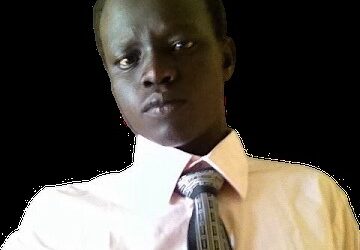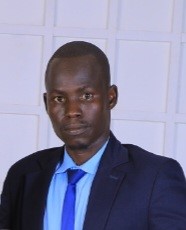By Theem Isaac Machar Akot
Reform is coming to the South Sudanese, but the South Sudanese are running faster than the reform. South Sudan is still a 19th-century country, not a nation in the 21st century.
I am afraid to say this: By the time South Sudanese realized themselves in the dark age, the world would have stepped ahead a thousand miles earlier.
It is a truth worth telling, although it breaks the pelvis. A group of individuals have decided to keep us away from modern politics and the economy. The signs of this finding are the then-European experiences. The ban on public expression, social gathering, and peaceful demonstrations is a clear indication in comparison to the then-totalitarian France.
It is not going to be a surprise to hear from the oppressors telling you to stop buying chapatti if it is expensive and concentrate on buying bread and butter.
The worst will be when they tell us to decide whether we should relocate or bear with the starvation. Whether we agree or not, our oblivion is responsible for all of these. We lost the right path a long time ago. Turning around and retracting the route are different things altogether. As such, I made up my mind a couple of times before. There has been ambivalence between my instinct and me about making a certain confidential decision.
I have been holding a meeting with my introspection so that I could decide if joining the ruling party or the opposition party would be an ideal choice. The meeting has been in a deadlock for three years because my introspection keeps telling me that the two entities are like each other.
However, joining any party could end up not meeting your expectations. The stand-off has been years’ perpetuation until recently, when I succumbed to my introspection’s persuasion. Having coupled this finding with my observation, in fact, joining a political party during this turbulence is not the right choice for a patriotic son or daughter. Reasonably, the existence of an independent state in the name of South Sudan has been changed to mean something else. It might be offending, but it coherently means it. The nation is not even an extended family but a single family whose direction and perspectives belong to one man.
We have led ourselves down as citizens. Truth-telling is not our portion; otherwise, sycophancy has been its good replacement. For how long should we allow marginalization to continue? Why are you too susceptible to tricks? The ruling party blames the opposition for all the misunderstandings and shortcomings, and so does the opposition. And we blindly follow them just to get what food takes us for days while kicking.
To the best of my knowledge, neither of the two is conducive to the prosperity of the nation. If one fails to know the cause of these hardships, then you must be one or an associate. Sometimes, most people should stop confusing the thunder. Because it is hard to distinguish the oppressed from the oppressors. The oppressed at times bombard the few informed oppressed who speak up for the uniformly oppressed majority.
We have joined parties after parties, but it has not changed the narrative of who we were before. This time does not require denial of the truth. It is not time to denounce the few who shed light on enslavement. It is time we told the truth about the masters of mistreatment. No matter how much we try to be resistant to revolution, the revolution itself has changed us. According to people who are friendly to education and do not open their English dictionaries to find out the meaning of the word revolution, they think it’s a war. The English dictionary defines it as a change or reform of a certain policy or rule to suit the interests of the majority. Hence, our aim is the prevalence of change.
My final word is to accept change; it is the only way out. Telling ourselves to wait for our time is not the right choice. There is no more time for us. Now is the time.
The writer is a third-year student at the University of Juba School of Education, Department of English Language and Literature.



